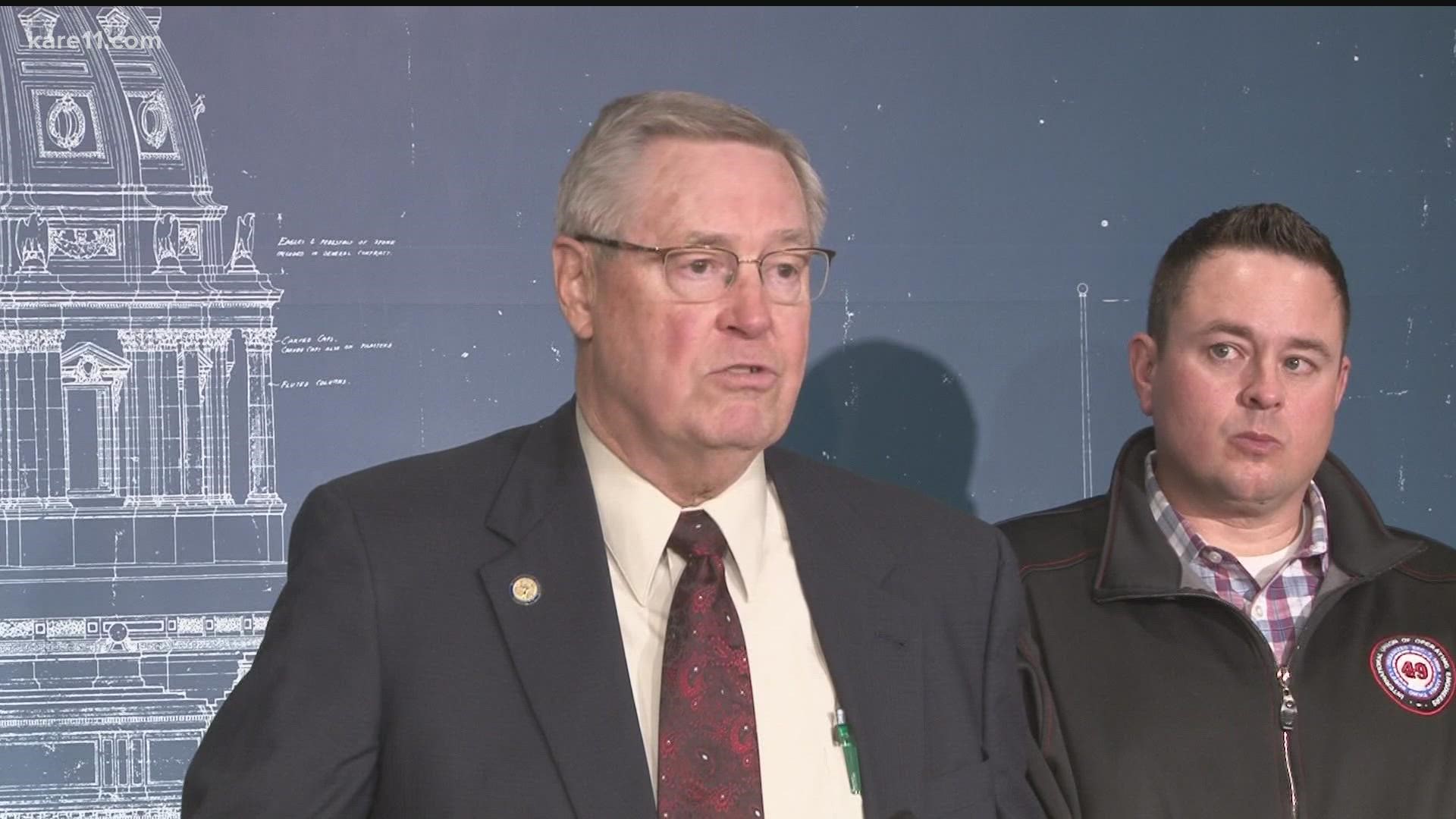ST PAUL, Minn. — Senate Republicans put forward two bills Tuesday designed to put more tax dollars into transportation. If passed into law the legislation would devote 100% of auto parts sales tax revenue to Minnesota roads and bridges.
Under current law, half of that revenue goes to the Highway Users Trust Fund while the other half goes to the General Fund to pay for other state needs such as education, health care, and pollution control.
"Everybody in the state of Minnesota benefits from a vibrant transportation system," Sen. Scott Newman, the Hutchinson Republican who chairs the Senate Transportation Committee, told capitol reporters.
"Think of all of the jobs that this funding will provide for all of us in the construction industry, and that all spends off into our economy."
The state's 6.875% sales tax is projected to generate $303 million this fiscal year on auto part sales alone. Sen. Newman and other supporters of the idea assert dedicating all of that revenue to transportation would be a reliable source of funding at a time when fuel taxes aren't generating as much money as they once did.
"This is about ongoing funding and making sure we take care of the entire state and also for the future," Jason George of the Operation Engineers Union Local 49 remarked.
"We can grow the fund and continue to take care of all the needs we have."
The second bill, from Rockville Republican Jeff Howe, would set aside part of the money just for road and bridge grants to cities and townships.
"Those folks buy gas too!" Sen. Howe said. "This gets a steady stream for those cities under 5,000 who, right now, get no funding. The only way they repair their roads is with local property taxes."
Both Sen. Newman's bill and Sen. Howe's legislation cleared their first legislative hurdle Tuesday afternoon when the Transportation Committee approved them unanimously. The next stop for both bills is the Senate Tax Committee.
The Highway Users Trust Fund also includes money from the fuel tax, vehicle license taxes, and motor vehicle sales tax. The money is used to leverage federal dollars and public works bonding money.
The last time state lawmakers raised the gas tax was in 2008, with the hike unfolding gradually over several years. Democrats have proposed gas tax hikes for years, including some that are indexed to inflation of construction materials.
But Republicans who control the Senate have made it clear they're not willing to go along with the idea. Gas tax revenues have been affected by more fuel- efficient cars and the advent of hybrids and fully electric vehicles.
Owners of electric vehicles pay a $75 annual fee in lieu of a gas tax, which is significantly less than the gas taxes paid by people who drive gasoline-powered vehicles. The notion of a mileage tax has some support, but data privacy concerns remain a major impediment.
Tim Worke of the Associated General Contractors told reporters having a reliable funding stream helps with coordination of large highway projects. He noted that the Interstate 35/94 project south of downtown Minneapolis was finished nearly a year ahead of schedule, because the money kept flowing.
"If we didn’t have predictable and stable funding in this industry that project would’ve taken significantly longer. It would’ve been staged, been more disruptive than it was, it would’ve cost businesses more," Worke explained.

